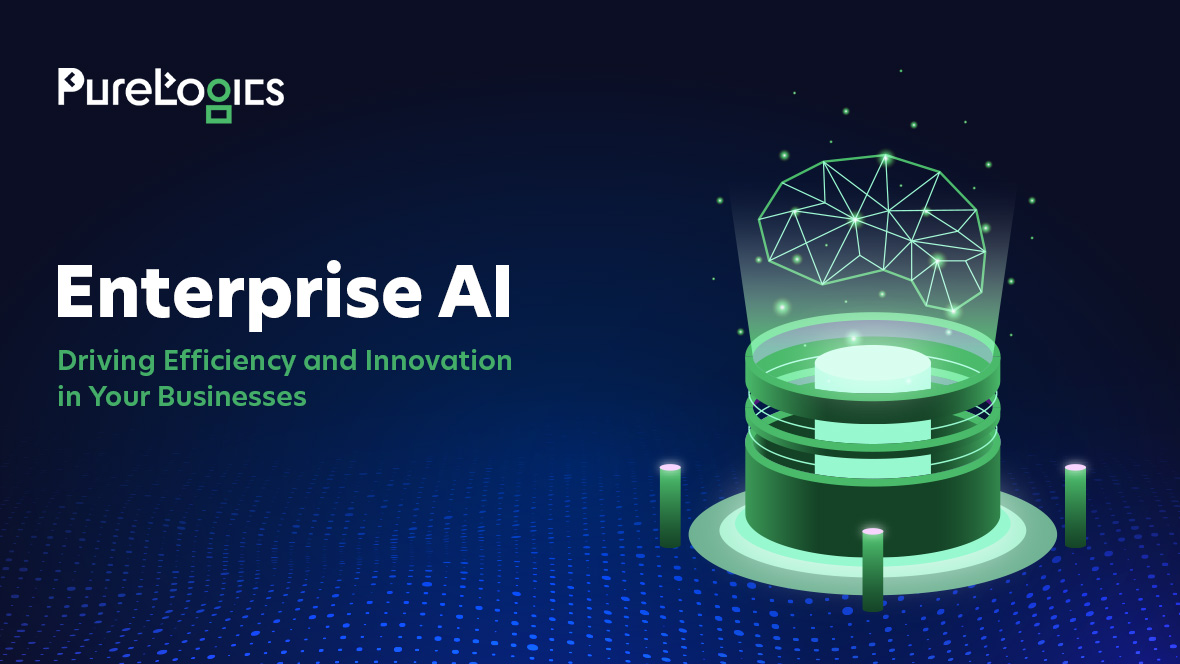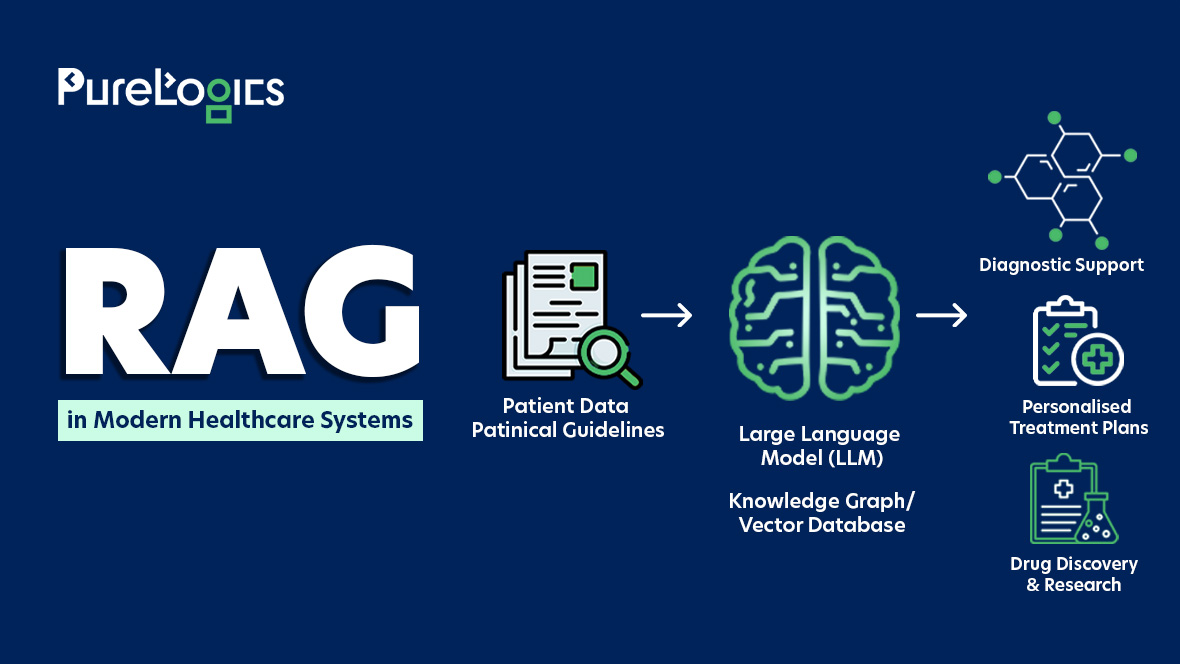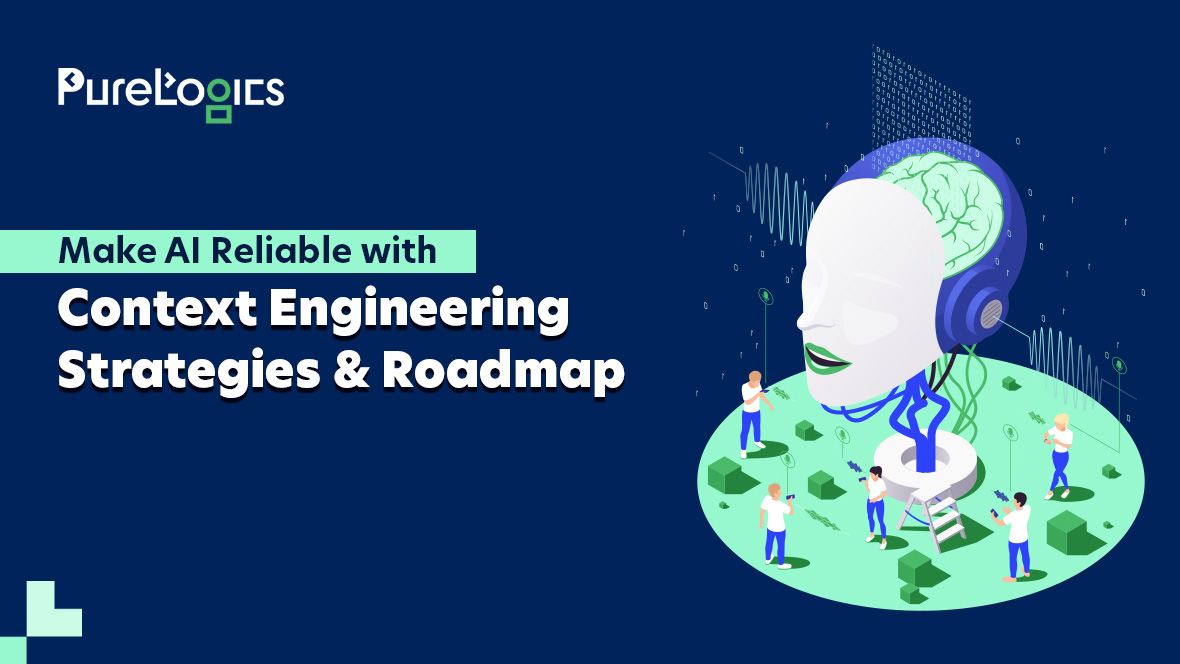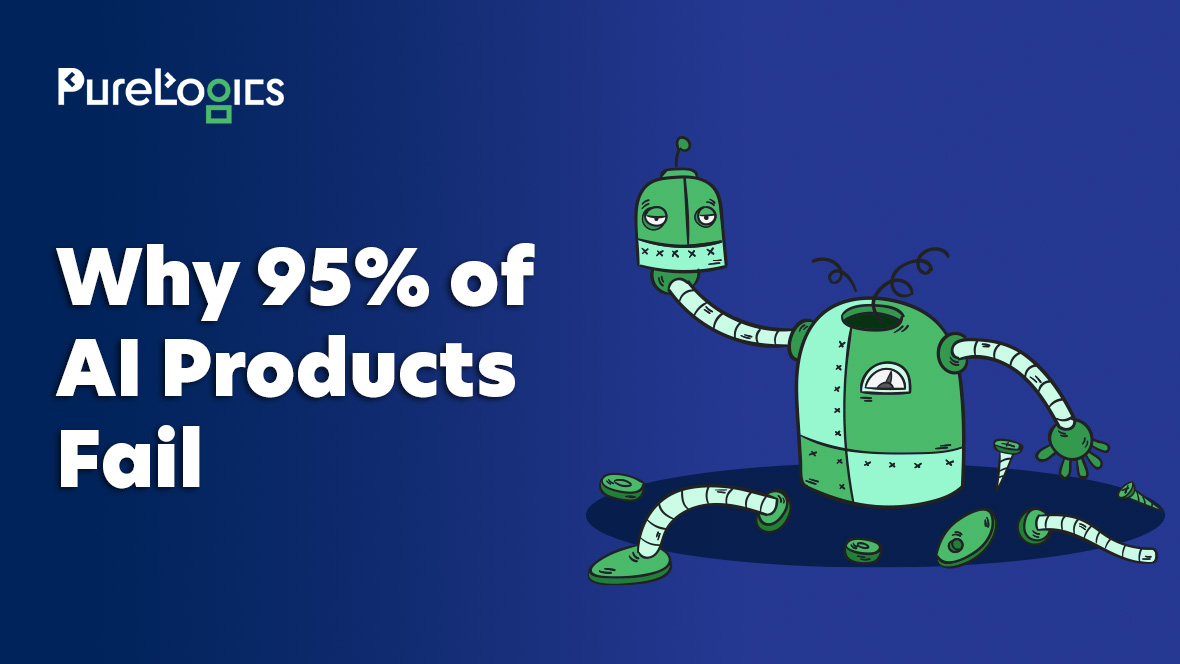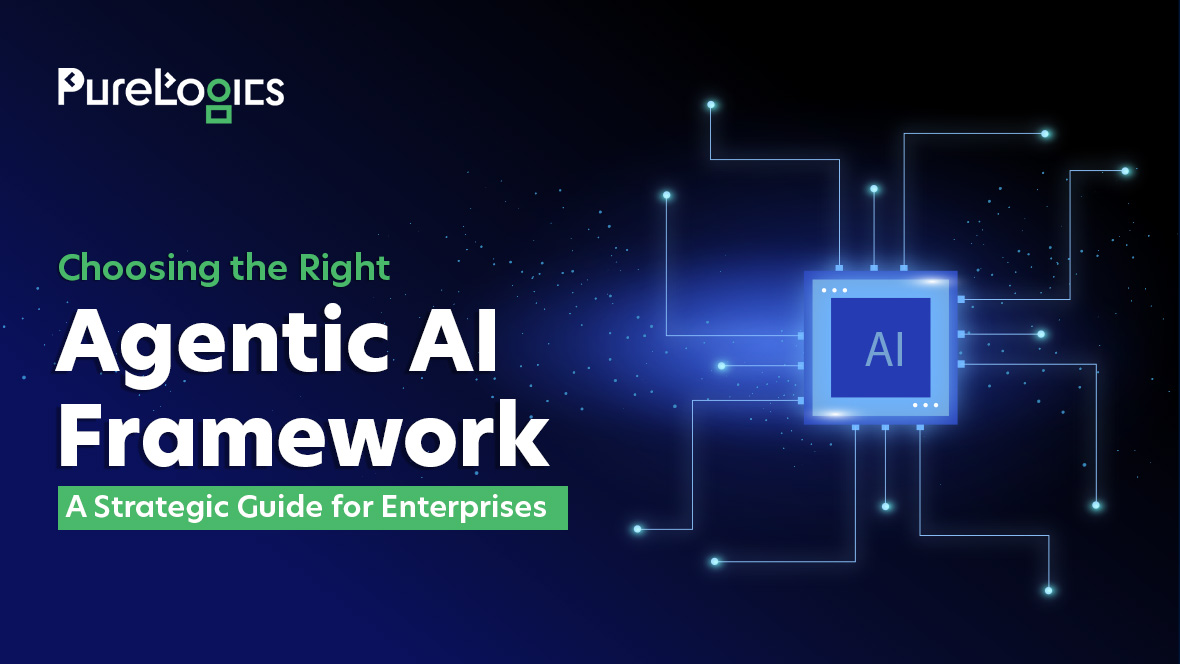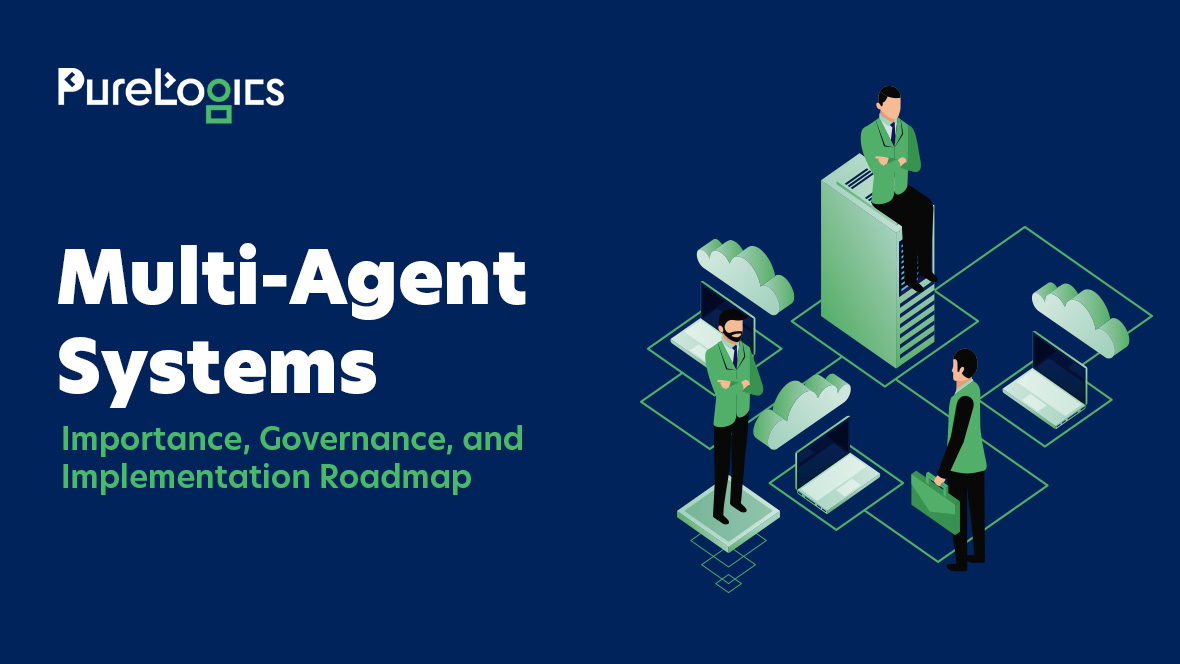Picture a logistics firm where trucks have an inherent ability to optimize their routes and predict the best times to restock based on supply chain patterns. Or think of a hospital employing AI to provide their patients with personalized treatment. You may be thinking that these are futuristics, but they are real-world examples of enterprise AI at work today.
77% of businesses claim that artificial intelligence has improved their operational efficiency. This isn’t limited to only a few businesses. Every enterprise that implemented AI has acknowledged that AI has refined their decision-making processes, enhanced productivity, and driven unprecedented innovation.
Enterprise AI has moved far beyond theoretical applications. Today, it is a powerful tool for many businesses, helping them to secure a competitive edge. And unlike consumer-facing AI, this technology tackles more than shopping suggestions or movie recommendations.
For entrepreneurs who want to create a robust and visionary enterprise, implementing AI technology is mandatory. Through this blog post, we will help you redefine how AI can drive efficiency and innovation in enterprises. So, without any further ado, let’s start!
What is Enterprise AI?
Enterprise AI includes using artificial intelligence to streamline business and manufacturing mechanisms. It minimizes manual effort, saves time, and decreases every possible risk of human errors. A large percentage of companies across all industries are using enterprise AI tools and technologies to drive efficiency and innovation in their business operations.
Key AI Sub-Technologies Driving Enterprise Innovation
Enterprise AI depends on a combination of AI sub-technologies; each technology has a crucial role in the decision-making process. Enterprises that want to integrate artificial intelligence into their operational workflows must have knowledge of the primary AI sub-technologies used in software development.
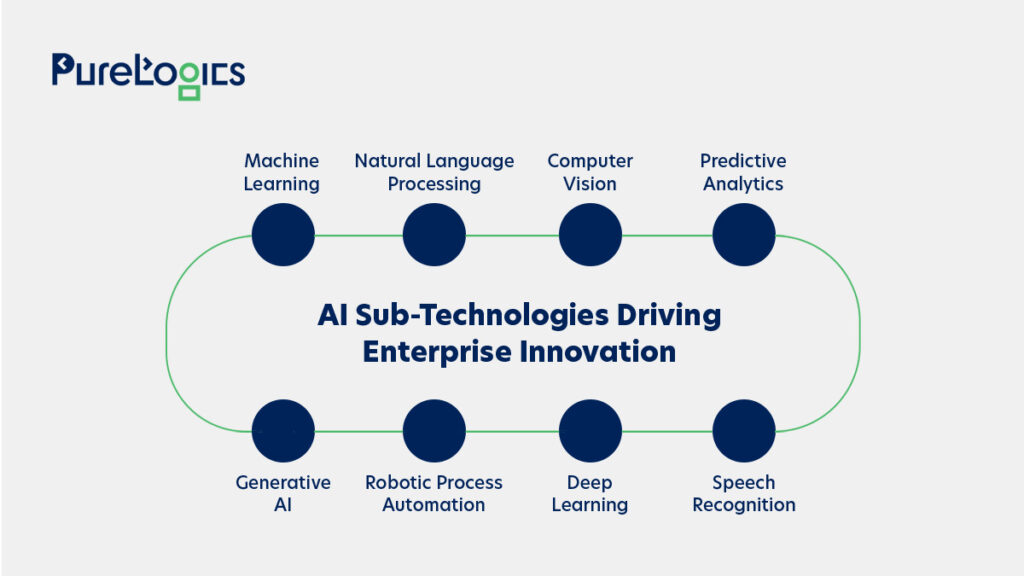
Machine Learning
Many enterprises utilize machine learning as their key technology in AI applications. Machine learning technology helps them interpret their data and find patterns with little human involvement.
Natural Language Processing
It includes guiding computers on how to interpret and interact with human language. This technology is used in developing chatbots and virtual assistants. It improves customer service automation, increases communication efficiency, and extracts information from unstructured emails and social media posts.
Computer Vision
Companies use this AI subtechnology to help machines view images or videos to make decisions accordingly. Facial recognition is one of the popular enterprise AI examples.
Predictive Analytics
Predictive analytics is an AI technology that forecasts future outcomes according to past information patterns. Risk assessment, demand estimation, and marketing optimization are some of the key components of predictive analytics.
Generative AI
Generative AI is also gaining colossal popularity within enterprises. It can produce new content like images, code, text, etc. GenAI streamlines creative mechanisms and allows enterprises to make personalized marketing strategies, boost customer engagement, and automate content creation processes.
Robotic Process Automation
RPA is the automation of repetitive business processes using AI agents or software robots. It frees up employees for more valuable work and critical decision-making. Examples of repetitive tasks are invoice processing, employee onboarding, etc.
Deep Learning
Deep learning is a part of machine learning. It employs neural networks to figure out complex patterns in data sets. The applications of enterprise AI include image classification, speech recognition, and much more.
Speech Recognition
This uses AI tools to change spoken language into written text. It helps algorithms understand human instructions and respond to users’ queries accordingly.
Transform your enterprise with AI expertise
Let technologies like Computer Vision and Predictive Analytics pave the way for smarter strategies.
Why Enterprise AI is Essential for Businesses
The businesses in the 21st century continuously strive towards innovation, efficiency, and customer-centricity. Look at the table below; it will help you understand the benefits of enterprise AI with proper examples.
| Benefit | Description | Example |
| Enhanced decision-making | AI delivers data-driven insights for informed, accurate decisions. | Retailers use AI to analyze customer data and forecast trends, improving product launches and marketing. |
| Operational efficiency | AI automates routine tasks, reducing manual work and increasing speed. | Manufacturing uses AI for predictive maintenance, reducing downtime and boosting production efficiency. |
| Cost reduction | Workflow automation cuts labor costs and increases output with fewer resources. | AI chatbots in customer service handle basic inquiries, reducing the need for larger support teams. |
| Improved customer experience | AI customizes interactions by understanding what users like and how they behave. | E-commerce platforms use AI to recommend products, boosting engagement and conversions. |
| Risk management | AI predicts and mitigates risks by analyzing patterns in real time. | Financial institutions use AI for fraud detection and monitoring transactions to flag suspicious activities. |
| Faster innovation | AI speeds up R&D by processing large data sets rapidly. | Pharmaceutical firms use AI to analyze clinical trials, accelerating drug development and approvals. |
| Scalability | AI solutions scale with your business, handling growth seamlessly. | AI in cloud platforms lets businesses scale operations efficiently to meet increasing customer demand. |
Industry-Specific Applications of Enterprise AI
Enterprise AI is not a one-stop solution for all industries; its power and capabilities depend on versatility. Let’s have a quick glimpse into how AI is revolutionizing enterprises across various industries!
1. Healthcare
The leading healthcare organizations know that enterprise AI has been proactively revolutionizing the healthcare industry through predictive analytics, personalized treatment plans, and error-free resource management.
Doctors use AI-powered diagnostic tools to detect diseases earlier and improve overall patient outcomes. Moreover, enterprise AI also automates healthcare administrative tasks and frees up medical employees so that they can focus more on patient care.
2. PropTech
In real estate, AI is making property management easier and helping improve investment choices.
From predictive maintenance to intelligent building systems, AI optimizes operational costs and energy use. It also provides data-driven insights, improving real estate transactions and tenant experience in smart buildings.
3. EdTech
AI in education is transforming both teaching and learning processes. With personalized learning algorithms and AI-driven assessments, education becomes more accessible and adaptive.
AI-powered tools can identify gaps in student knowledge, enabling tailored instructional approaches that drive better academic performance.
4. Fintech
Finance teams can use enterprise AI to improve security and make better decisions. For example, AI can help spot fraudulent transactions, evaluate credit risks, and automate tasks like processing invoices and balancing accounts.
In addition to this, AI-powered trading systems can allow you to make fast, data-based investment choices in real time.
5. Customer Services
AI-driven customer service solutions, such as chatbots and virtual assistants, improve response times and enhance customer satisfaction. By analyzing customer queries in real time, AI offers quick, relevant solutions. This automation also helps businesses provide personalized service at scale, driving efficiency.
6. Retail
In today’s competitive retail world, it’s important to understand what customers want. AI can help businesses by looking at things like customer shopping history, online activity, and social media to predict what products will be in demand and recommend products that suit each person.
For example, think of a shopping app that suggests accessories that match the clothes you just bought, making your shopping experience more fun and personal.
Ready to Incorporate Enterprise AI into Your Business?
Enterprise AI is a strong tool, but to use it successfully, you need a clear plan. By following the right steps and working with a trusted AI development company like PureLogics, you can fully unlock the power of AI and gain a lasting edge over your competition.
Our expert team will support you every step of the way, from choosing the right AI solutions to building a solid AI system and helping your organization adapt to changes.
We offer a free 30-minute consultation call service. Don’t wait – get in touch with PureLogics today.


 [tta_listen_btn]
[tta_listen_btn]
 December 4 2024
December 4 2024

